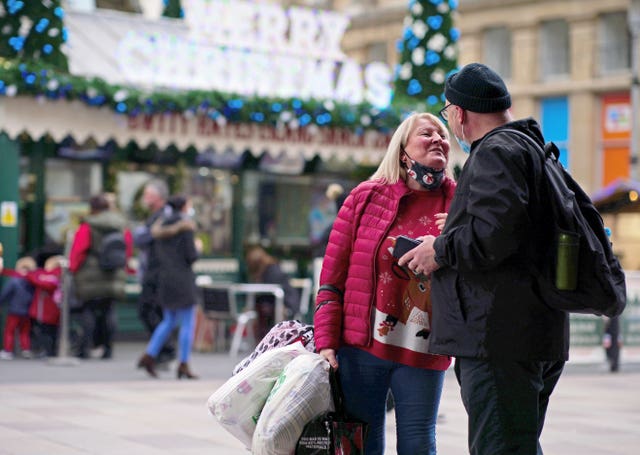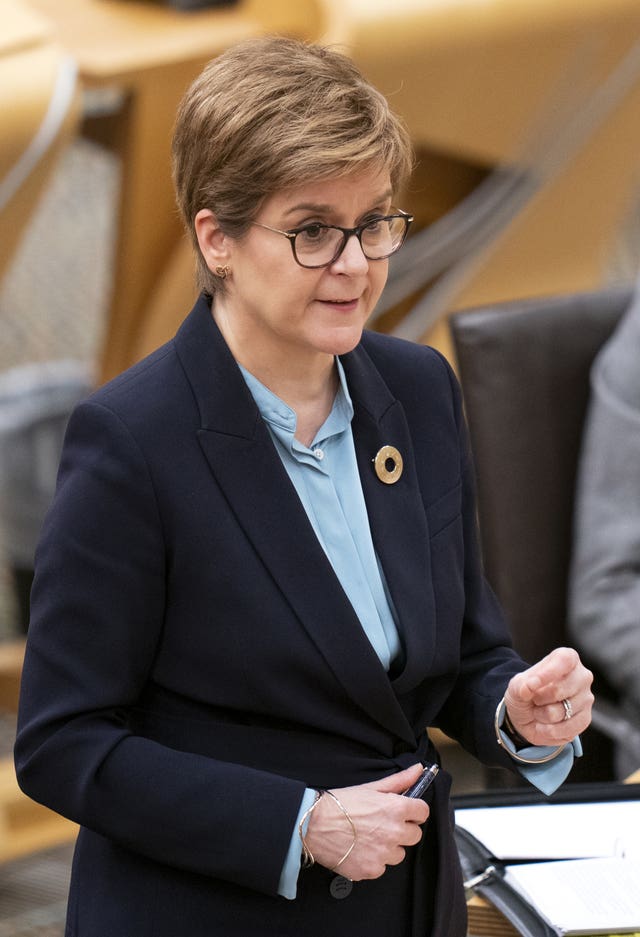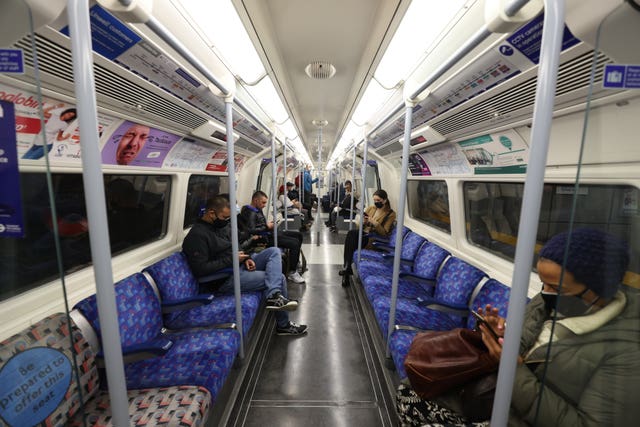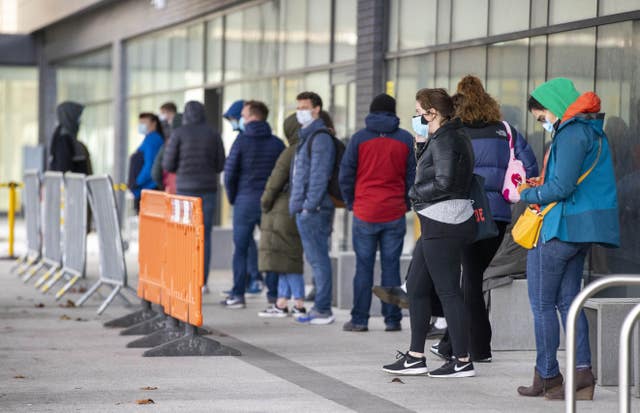How do Covid restrictions compare across the UK?
New restrictions are unlikely to stop Christmas celebrations this week but measures are slowly being introduced across the UK from Boxing Day.

Prime Minister Boris Johnson has said the evidence does not yet justify stricter measures to combat coronavirus, although his Scottish and Welsh counterparts have announced new rules.
Here, the PA news agency looks at how rules in the four UK nations compare.
– How have the rules changed in Wales?
Regulations have been changed to make travelling to an office a criminal offence punishable by a £60 fine for employees who are able to work from home.
From December 26, sporting events will be played behind closed doors to help control the spread of the new Omicron variant which is rising quickly across Wales.
Fans will no longer be allowed to attend either indoor or outdoor sporting events.

A £3 million Spectator Sports Fund will be available to support clubs and sporting venues affected by the new measures to protect public health.
First Minister Mark Drakeford previously announced a mixture of advice for the Christmas period alongside new regulations to follow as part of a “two-phase plan”.
Nightclubs will be closed from December 27 under the new rules, although the Welsh Government has announced a £60 million fund to support any businesses affected by the restrictions.
From the same date, two-metre social distancing will be mandatory in offices, and measures including one-way systems and physical barriers will be introduced in businesses to protect customers and staff.
Until December 27, the Welsh Government is encouraging people to follow five steps: getting vaccinated; making sure to have a negative lateral flow test result before going shopping or meeting people; meeting in well-ventilated areas – preferably outdoors; spacing out socialising to allow test days in between; and adhering to social distancing, wearing a face covering and washing hands.
It is also urging people to reduce contact with others over the coming days, especially if Christmas plans include seeing older or more vulnerable people.
Mr Drakeford said restricting the number of households allowed to meet remained a possibility, and hinted at the prospect of further restrictions in hospitality settings after Christmas, such as the “rule of six”.
– What about Scotland?
Following news on December 20 that Scotland had recorded its highest test positivity rate since January this year (6,734 new coronavirus cases in 24 hours), First Minister Nicola Sturgeon imposed limits on spectator numbers allowed at sporting events.
Coming into force from Boxing Day for “up to three weeks”, the new rules mean a maximum of 500 people can attend outdoor events where physical distancing of one metre is in place.

Indoor standing events will be limited to 100 spectators, and indoor seated events to 200.
This also means that large-scale traditional Scottish Hogmanay celebrations on December 31 have been called off.
For three weeks from January 27, pubs and other venues selling alcohol will also be required to offer table service only.
By law in Scotland, everyone over the age of 12 must wear face coverings indoors, unless exempt, and the new guidance stresses that masks should be worn inside all businesses.
Ministers at Holyrood have found £100 million for business support, with the First Minister announcing that £66 million will go to hospitality, £8 million to businesses in the food and drink supply chain, £20 million to the culture sector, £3 million to the wedding industry and £3 million to the “worst affected parts of tourism”.

It was also announced that allowing staff to work from home where possible will again become a legal duty on employers.
Care home visits have been limited to two households, while all over-18s can book a booster jab appointment online.
– What is the situation in England?
Mr Johnson has given people the go-ahead to continue with their Christmas plans, although he warned tougher restrictions could be implemented after December 25.

England currently has the most relaxed rules in the UK, but a recent vote in Parliament saw some measures introduced, including Covid passes for entry into nightclubs and other venues as of December 15.
This applies to indoor events with 500 or more attendees where people are likely to stand or move around, such as music venues, outdoor events with 4,000 or more attendees, such as music festivals, and any events with 10,000 or more attendees, whether indoors or outdoors, such as sports stadiums.
Face coverings have also been made compulsory in most indoor public settings, as well as on public transport, and people have been told to work from home if they can.
People aged 18 and over are able to get their third jabs from this week.
England’s guidance is that people should work from home if they can. Anyone who cannot work from home should continue to go in to work – but is encouraged to consider taking lateral flow tests regularly.
Chancellor Rishi Sunak has offered a £1 billion support package to businesses hit by Covid restrictions, after days of urgent lobbying from MPs, firms and industry officials.
It includes one-off grants of up to £6,000 per premises for businesses in the affected sectors in England, which the Treasury expects will be administered by local authorities and to be available in the coming weeks.
The Government also intends to use taxpayers’ cash to cover the cost of statutory sick pay for Covid-related absences for firms with fewer than 250 employees.
– What is Northern Ireland doing?
Following a December 16 meeting to consider the developing Omicron situation, the Executive Office announced that “scenario planning is under way to develop a package of potential measures we could deploy to slow the spread of the virus and when would be the most effective time to deploy them”.
In a joint statement, ministers said: “Those decisions will be underpinned by scientific and medical advice and the Executive will meet again next week to review the data and consider next steps.”
Current advice is that indoor gatherings should have no more than 30 people present, while working from home is also recommended where possible.

A scheme that requires people to prove Covid-free status to gain entry to a range of hospitality venues and large-attendance events will be made mandatory.
Those wishing to access nightclubs, pubs, restaurants and other licensed premises will need to provide proof of vaccination, a negative lateral flow test result, or evidence of a previous Covid-19 infection.
The same rules will apply for entry to large indoor and outdoor events such as concerts and sporting events.





